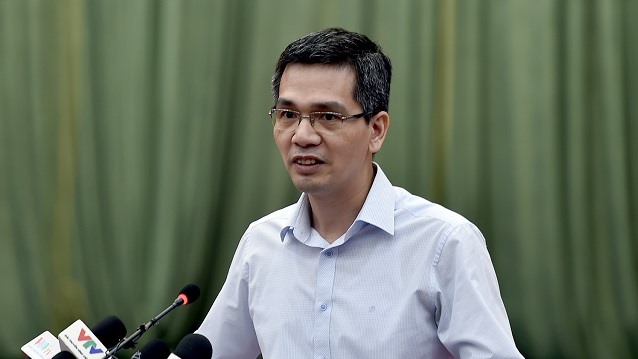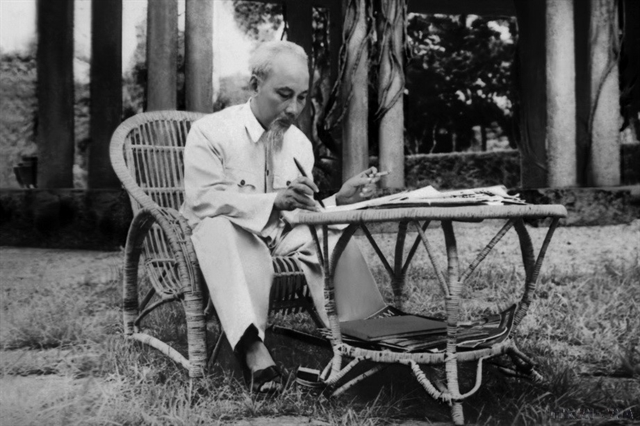.jfif) Opinion
Opinion

Võ Thành Hưng, director general of the State Budget Department under the Ministry of Finance, speaks to the Kinh tế & Đô thị (Economic and Urban Affairs) newspaper about challenges tax offices face working with State-owned enterprises, foreign firms and private entities.
 |
| Võ Thành Hưng, director general of the State Budget Department under the Ministry of Finance. — Photo kinhtedothi.vn |
Võ Thành Hưng, director general of the State Budget Department under the Ministry of Finance, speaks to the Kinh tế & Đô thị (Economic and Urban Affairs) newspaper about challenges tax offices face working with State-owned enterprises, foreign firms and private entities.
Do you think the budget collection target set for this year will be achievable?
By late October we had already achieved 85 per cent of the target – an increase of 13.7 per cent compared with the same period last year. In the same period, it was projected that State budget spending increased 72.4 per cent. It is forecast that in 2018, State budget spending will surpass 2.6 per cent of the target, of which regular spending and loan interest payments are both close to the estimation.
The disbursement of investment spending in the first 10 months of 2018 achieved only 55.4 per cent of the goal. As a result, it is forecast that investment spending will be about 88.2 per cent of the target. For the rest of 2018, all ministries, sectors and localities have to work to force investors and project management boards to hasten budget disbursement.
According to reports, overspending and budget spending are within the allowed margins – about 3.6 per cent of GDP. Meanwhile, public debt, Government debt and offshore borrowing are all well under control.
Though budget collection this year has surpassed the projected target, it has not met the targets laid down by the National Assembly. In your opinion, what are the challenges?
There are three main challenges for State budget collection.
First, we have not fulfilled the target set for the three most important key economic areas. The main reason for this was the projected figure for 2018 was too high. For example, the projected sum for State-owned enterprises (SOEs) was increased by 13.1 per cent against 2017; the figure for foreign direct investment (FDI) firms increased by 30.1 per cent; and the target for private firms increased by 20.4 per cent. Also, budget contributions by some major corporations had not met expectations. For example, the telecommunications sector in the first nine months achieved only about 59 per cent of its target, tobacco 70.6 per cent and the beer and beverages about 69.5 per cent.
Second, budget collection in some key localities had been lower than projected.
Third, the problems of transfer pricing, tax fraud and overdue taxes are complicated. For example, by December 31, 2016, overdue tax payments hit VNĐ77.3 trillion (US$3.31 billion). The same day a year later, the figure dropped to VNĐ73.1 trillion. But by September 30 this year, overdue tax jumped to VNĐ83 trillion.
Has the Ministry of Finance come up with a plan to fulfill its 2018 budget collection target?
To fulfill the task laid down by the National Assembly, the ministry will work closely with ministries, sectors and localities to help all economic sectors promote their business activities and improve the investment environment.
The ministry will work to accomplish its tax collection target assigned by the National Assembly, particularly bad debts and overdue debts.
State budget spending is a concern for all of society. What areas have captured the most attention for the financial sector in the use of the State budget?
Upholding the State Budget Law in the course of budget spending has become an urgent task for all public agencies, institutions and organisations.
In the course of restructuring the State budget, we have made certain successes. We were able to reduce regular spending to 63 per cent against the target of 64 per cent; to increase the investment percentage to 26-27 per cent against the target of 25-26 per cent and to adjust the annual wage increase for all public wage earners to 7 per cent in 2018. In 2018, we have applied a multi-dimensional policy in the poverty reduction programme together with programmes on social security and national defence and security. — VNS




